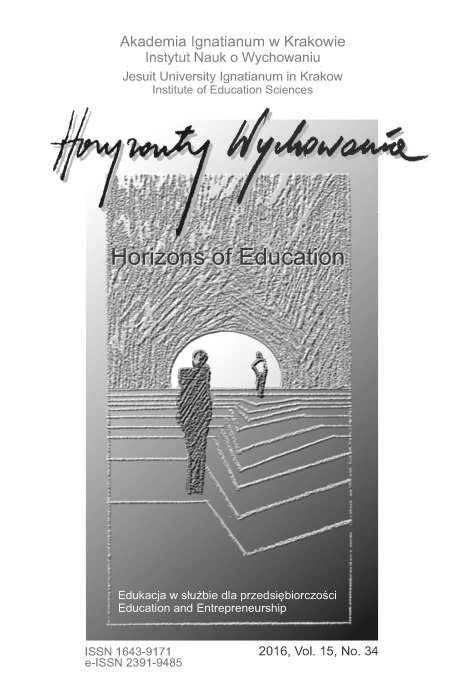Rola systemu oświaty w kreowaniu warunków rozwoju gospodarki opartej na wiedzy w Polsce
The role of the education system in creating conditions for developing knowledge-based economy in Poland
Author(s): Wojciech PopczykSubject(s): School education, Vocational Education, Educational Psychology, State/Government and Education, Organizational Psychology, Methodology and research technology
Published by: Uniwersytet Ignatianum w Krakowie
Keywords: knowledge-based economy; competitiveness; national educational system;
Summary/Abstract: Research objective: The purpose of this paper is an analysis of two cases of the educational systems in Singapore and Finland, comparing them with the Polish education system and, finally, confronting the analytical results with selected indicators of competitiveness of the economies they function in. The research problem and methods: The author formulates the research problem the following way: What should an education system be like in order to support competitiveness of the economy aspiring to the status of the knowledge-based one? The study applies a case study and the analyses of multinational statistics on states’ competitiveness as research methods. The process of argumentation: The new economy means reorientation of the contemporary economy based on the transformation from the traditional one into the knowledge-based one. Existing competition of countries, regions and enterprises based on their tangible resources is being replaced by competition based on intangible resources, such as: intellectual capital, know-how, and innovative technologies. Therefore, social development will increasingly depend on intellectual and interpersonal potentials. The critical conditions in the process of building knowledge-based economy appear to be professional/ vocational competences of entrepreneurs and employees, their experiences in ICT, communicative and linguistic skills, international mobility and, first of all, entrepreneurial orientation: their readiness to take risk, innovativeness, creativity and passion standing for so called soft competences. Primary and secondary schools are considered the best environment for systematic and effective shaping of such competences. Research results: The competitiveness of the Polish economy is relatively low, and the Polish education system focuses on the transfer of verbal, curricular contents instead of developing competences and skills required by the new economy. Conclusions, innovations and recommendations: The author recommends introducing changes in the Polish education system, similar to the ones applied by Singapore and Finland.
Journal: Horyzonty Wychowania
- Issue Year: 15/2016
- Issue No: 34
- Page Range: 103-121
- Page Count: 19
- Language: Polish

